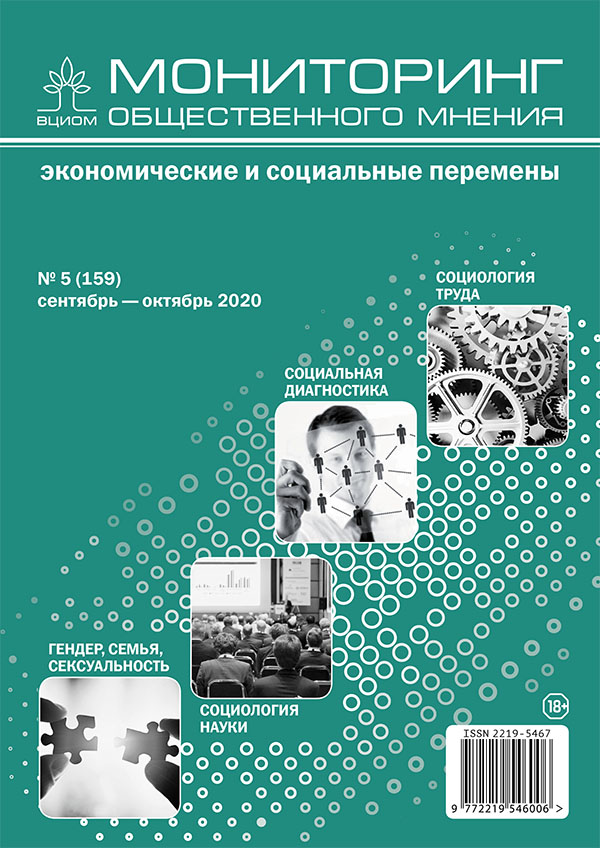The Social Meaning of Money for Retired Persons in a Russian Village
DOI:
https://doi.org/10.14515/monitoring.2020.5.532Keywords:
social meaning of money, sources of income, decision-making mechanisms, aims of expenses, pension, personal subsidiary plots, social policy, Russian village, retired personsAbstract
The paper deals with social differentiation of money by the retirees living in the Russian village. Given that the living standards in rural area are rather low, rural inhabitants, especially retirees whose financial well-being is lower than that of the economically active popiation, pay much more attention to the sources of income. The theoretical framework of the study is the theory of money by Viviana A. Zelizer. Zelizer rejects the value neutrality of money in favour of its social differentiation depending on the sources of income and purpose of use as well as financial decision-making mechanisms. The study is based on the interviews with the retired persons from a Vologda oblast village. The findings suggest that there are multiple ways of social differentiation.
Depending on the sources of income retired persons divide them into five types: existential income, high-value earnings, earning from the folk art market, sacral money, and casual income. When it comes to every-day expenses retirees take decisions easily and without deep reflexion; however they need to think thoroughly when it comes to additional sources of income used to satisfy their needs of a higher level. The purposes the money is intended for depend on the nature of its income: money from the guaranteed sources of income is used for basic living expenses, whereas irregular income is spent on unnecessary expenses.
Downloads
Published
How to Cite
Issue
Section
License
Copyright (c) 2020 Monitoring of Public Opinion: Economic and Social Changes Journal. Public Opinion Monitoring ISSN 2219-5467

This work is licensed under a Creative Commons Attribution-NonCommercial-ShareAlike 4.0 International License.






